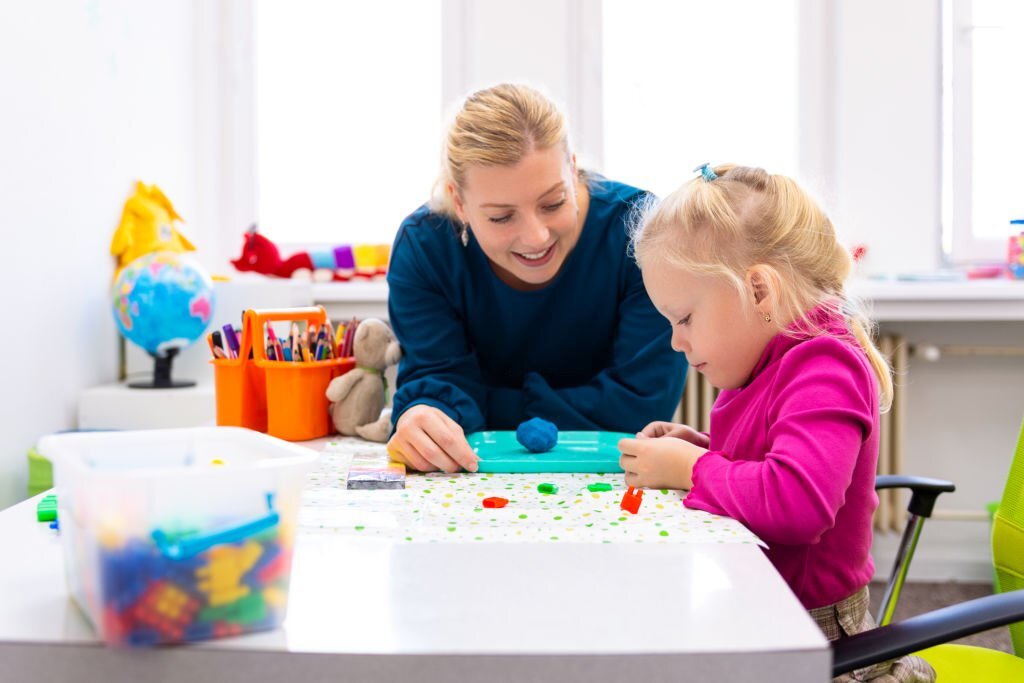Sensory Processing Therapy FAQ
What is sensory processing disorder?
Sensory processing disorder (SPD) is a neuropsychiatric condition that exists when sensory signals don’t get organised into appropriate responses. People with SPD find it difficult to process sensory information (e.g. sound, touch and movement) from the world around them. This means that they may feel sensory input intensely than other people. SPD can therefore impact on a person’s ability to interact in different environments and perform daily activities.
There are 3 possible components of dysfunction of sensory integration:
- Sensory Modulation Disorder is a problem with turning sensory messages into controlled behaviours that match the nature and intensity of the sensory information.
- Sensory-Based Motor Disorder is a problem with stabilising, moving or planning a series of movements in response to sensory demands.
- Sensory Discrimination Disorder is a problem with sensing similarities and differences between sensations.
1-2 year developmental checklist.
MOVEMENT
- Walks alone (12-16 mos.)
- Pulls toys behind him while walking (13-16 mos.)
- Carries large toy or several toys while walking (12-15 mos.)
- Begins to run stiffly (16-18 mos.)
- Walks into ball (18-24 mos.)
- Climbs onto and down from furniture unsupported (16-24 mos.)
- Walks up and down stairs holding on to support (18-24 mos.)
HAND AND FINGER SKILLS
- Scribbles spontaneously (14-16 mos.)
- Turns over container to pour out contents (12-18 mos.)
- Builds tower of four blocks or more (20-24 mos.)
LANGUAGE
- Points to object or picture when it’s named for them (18-24 mos.)
- Recognizes names of familiar people, objects, and body parts (18-24 mos.) Says several single words (15-18 mos.)
- Uses two-word sentences (18-24 mos.)
- Follows simple, one-step instructions (14-18 mos.)
- Repeats words overheard in conversations (16-18 mos.)
COGNITIVE
- Finds objects even when hidden under 2 or 3 covers.
- Begins to sort shapes and colors (20-24 mos.)
- Begins make-believe play (20-24 mos.)
SOCIAL
- Imitates behavior of others, especially adults and older children (18-24 mos.)
- Increasingly enthusiastic about company or other children (20-24 mos.
- Demonstrates increasing independence (18-24 mos.)
- Begins to show defiant behavior (18-24 mos.)
- Episodes of separation anxiety increase toward midyear, then fade.
DEVELOPMENTAL RED FLAGS (12 TO 24 MONTHS)
- Cannot walk by 18 months
- Fails to develop a mature heel-toe walking pattern after several months of walking or walks exclusively on toes.
- Does not speak at least 15 words by 18 months
- Does not use two-word sentences by age 2
- By 15 months does not seem to know the function of common household objects (brush, telephone, bell, fork, spoon)
- Does not imitate actions or words by 24 mos.
- Does not follow simple one-step instructions by 24 mos.
The Infant Development Program (IDP) is a specific child-centred program developed for children from birth to 2 years of age. At this age, indicators of delays are hard to identify, however, it is also the time when foundation skills for future development are being laid. Therefore, it becomes even more important to identify and address them as early as possible.
Child health screening and early intervention services?
INSYNC provides screening, diagnosis, intervention plans, direct intervention, and monitoring of progress, alongside family education and support, for children with signs of developmental differences, delays or a diagnosis of any of the known developmental disorders. These could be Autism Spectrum Disorder, Sensory Processing Disorder, Global Developmental Delays, Dyspraxia, ADHD, Down Syndrome, and other childhood concerns.
These differences and delays may be the actual underlying cause of what looks like:
- Not connecting with parents despite parental attempt
- Delays in speaking
- Not responding to name
- Inability or disinterest in playing games involving other children
- Differences in quality of play and interaction with peers,
- Sensory needs and difficulties
- repetitive actions or behaviours that seem purposeless
- Decreased range of facial expressions while speaking
- Clumsiness in doing age-appropriate tasks or games.
Developmental delay occupational therapy intervention.
A paediatric occupational therapist specialising in developmental delay will be skilled at assessing a child to establish what areas they are weak in and what the reasons are for this. It is essential to break activities down into their component skills needed to complete them successfully. For example, a child may be delayed in self-care and dressing.
The role of an occupational therapist is to identify the skills required for tasks and be able to assess the level of these underlying skills in the child. The therapist is then able to identify exactly which component of the task is causing difficulty, and plan appropriate treatment to aid development.
Fine motor skill activities. How it helps.
Fine motor skills refer to how we use the smaller muscle groups in our bodies to perform tasks. The most common examples involve the muscles in the hands, fingers and wrists. Children use their fine motor muscles to tie their shoes, write their name and cut paper with scissors.
Fine motor skills are crucial for doing many of the actions that we take for granted, like feeding ourselves, holding things, doing up zippers and buttons and drawing. Learning to use smaller muscle groups leads to bigger accomplishments like playing a musical instrument.
As babies grow into pre-schoolers, they’ll begin to use their motor skills to do intricate tasks like looking after themselves. Being able to brush their teeth, put on clothes and tie up shoelaces builds your child’s confidence and wellbeing.
Playdough is fantastic for kneading, pushing, pulling and rolling into shapes. This much-loved activity really gives the fingers a workout. Older children can learn how to use play dough tools to cut, press and squeeze it into all sorts of shapes. Introducing loose parts like pinecones, blocks, pebbles, popsicle sticks, spoons, string, metal bowls, material and beads allow children to develop their curiosity and fine motor skills.
Childhood development is complex and not all children will move at the same pace, but some of the most common reasons that a parent will contact us with concerns about their child’s fine motor skills include:
- An awkward or immature pencil grasp
- Messy or slow writing, drawing or colouring
- Excessive tiredness after short periods of writing, drawing or typing
- Difficulty when using scissors or performing precise manipulations such as fastening buttons, zips or shoelaces
- Problems performing self-care tasks independently
- Reluctance to engage with tasks requiring hand-eye coordination such as building Lego
Our assessment process allows a specialist occupational therapist to identify the nature of your child’s difficulties with fine motor skills, and the reasons for them. Once identified, we can work with you and your child to put in place a plan to address them.




